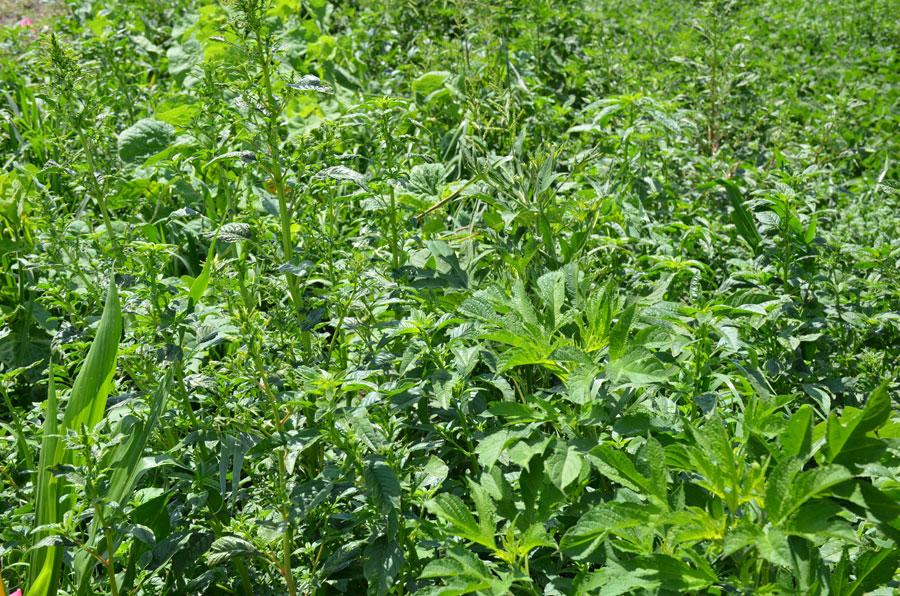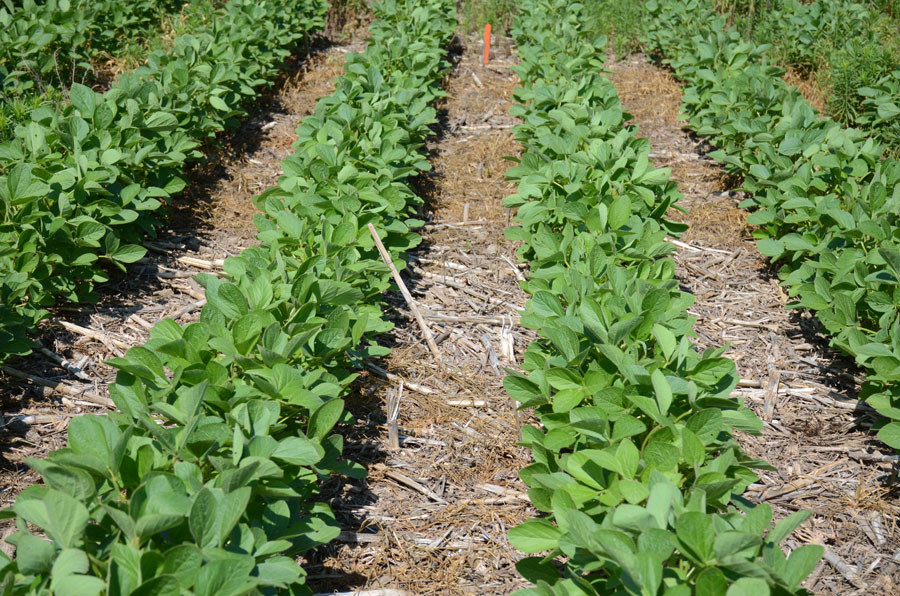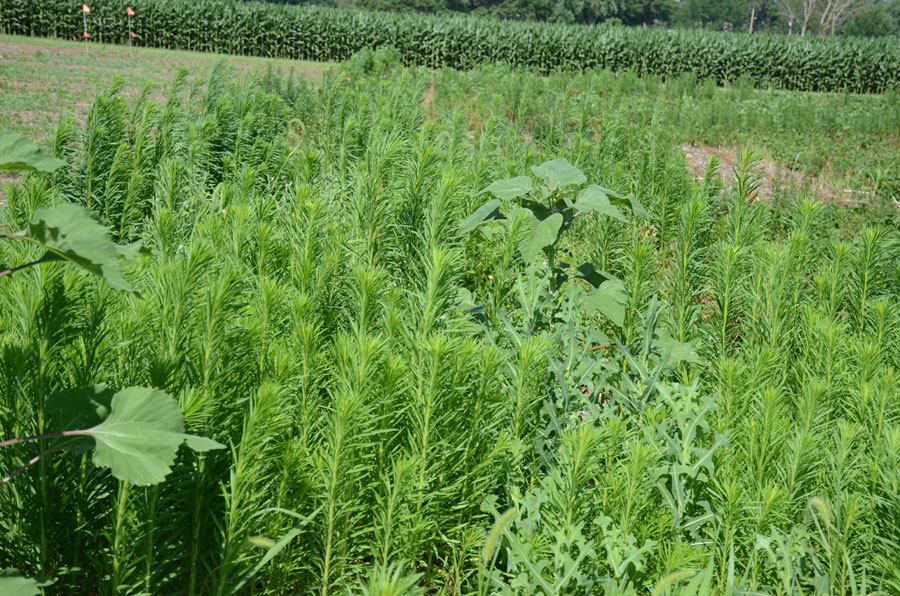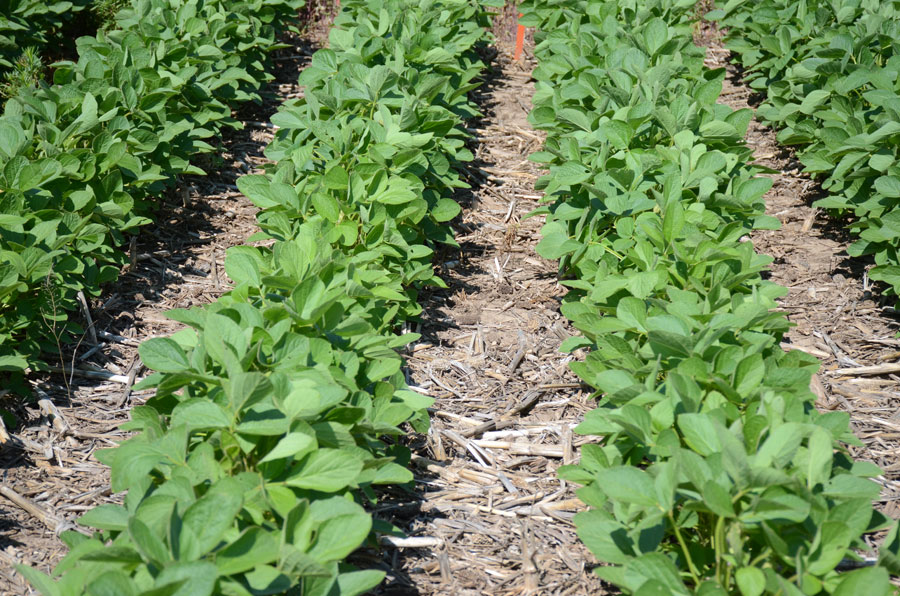Understanding the Enlist™ Weed Control System


Recently, we have been receiving calls from Nebraska growers about the Enlist™ Weed Control System and Enlist Duo™ herbicide. Basically, genetically engineered Enlist crops including corn, cotton, and soybean would be tolerant to 2,4-D plus glyphosate. The next generation Enlist crops, Enlist E3™, would be tolerant to 2,4-D, glyphosate, and glufosinate (Liberty).
Note
Enlist, Enlist E3, Enlist Duo, and Colex-D are trademarks of Dow Chemical Company ("Dow") or an affiliated company of Dow. As of April 2015, Enlist Duo herbicide is not registered for sale or use in all states. Contact your state pesticide regulatory agency to determine if a product is registered for sale or use in your state. Always read and follow label directions.
Features of the Dow AgroSciences Enlist Weed Control System include:
- Enlist traits
- Enlist Duo herbicide with Colex-D technology, and
- Enlist Ahead management resource (mobile app and information)
The Enlist weed management system and Enlist Duo herbicide have been tested for many years by industry and university weed scientists. USDA has now deregulated Enlist crops and EPA has approved Enlist Duo herbicide in major corn and soybean growing states, including Nebraska. It is expected that Enlist corn and soybean will be available commercially for the 2016 growing season.
Enlist traits provide robust crop tolerance, allowing a wide window of application of Enlist Duo herbicide over-the-top of Enlist crops, without causing injury if applied as recommended. Growers will have the flexibility to apply Enlist Duo herbicide:
- up to the V8 stage or 30-inch tall Enlist Corn,
- through R2 and full flower stage in Enlist soybeans, and
- up to midbloom in Enlist Cotton.
The herbicide Enlist Duo is a proprietary blend of 2,4-D choline and glyphosate that will provide broad-spectrum, post-emergence control of resistant and tough-to-control weeds. Dow product resources claimed that Enlist Duo herbicide combined with Colex-D technology would reduce volatility, minimize drift, decrease odor, and improve handling compared to traditional 2,4-D formulations. Enlist Duo herbicide ingredients are expected to provide broad spectrum weed control: 2,4-D choline will control glyphosate-resistant and susceptible broadleaf weeds and glyphosate may control glyphosate-susceptible broadleaf and grass weeds present at the time of application.
The application rate of Enlist Duo is 56 to 76 fl oz /acre and can be applied as pre-plant, pre-emergence or post-emergence on both Enlist corn and soybean. The cumulative application rate of Enlist Duo should not exceed 228 fl oz/acre per growing season and 76 fl oz/acre per application in both Enlist corn and soybean. If applied sequentially, there must be a 12-day interval between applications.
The third component of this system is a stewardship program that will provide growers with recommendations, tools, and training to ensure wise use this technology. A team of technical staff will provide information on management practices outlining the use of certified herbicides, suitable environmental conditions for herbicide application, application rate, method and equipment, and resistance management for hard-to-control weeds. For example, it is recommended that any pre-plant or pre-emergence herbicides applied do not contain glyphosate or plant growth regulators (2,4-D or dicamba) to diversify herbicide modes of action being applied.


Field experiments conducted in Nebraska for two years showed excellent control of glyphosate-resistant giant ragweed with a pre-emergence application of Sonic at 4.5 oz/acre followed by a post-emergence application of Enlist Duo at 75 fl oz/acre in Enlist soybean (Figure 1). Similarly, field experiments conducted in Nebraska showed excellent control of glyphosate-resistant marestail with a pre-emergence application of Sonic at 4.5 oz/acre followed by a post-emergence application of Enlist Duo at 65 fl oz/acre (Figure 2).
While the Enlist weed management system might be effective for control of glyphosate-resistant broadleaf weeds, the sustainability of Enlist weed management system and Enlist Duo herbicide will be based on many factors such as how growers use this system in the long run. The repeated application of a single herbicide or herbicides with the same mode of action results in herbicide-resistant weeds.
Reference to commercial products or trade names is made with the understanding that no discrimination is intended and no endorsement by University of Nebraska-Lincoln Extension is implied.
As of 2015, six weed species, including common ragweed, common waterhemp, giant ragweed, marestail, kochia, and Palmer amaranth, have been confirmed resistant to glyphosate in Nebraska. This is due to continuous application of glyphosate for several years in glyphosate-resistant corn and soybean cropping systems. In fact, a population of 2,4-D resistant common waterhemp in a continuous grass seed production has been confirmed in Nebraska (Crop Watch article, 2,4-D Resistant Waterhemp Confirmed in Nebraska). Therefore, an integrated weed management approach should be adopted that includes:
- Application of registered residual herbicides with multiple modes of action
- Use of tillage when appropriate for weed management
- Crop rotation and rotation of residual and foliar active herbicides with different modes of action
- Field scouting to record weed escapes and spot application if required
- Selection and rotation of herbicide-resistant crop cultivars
Amit Jhala, Nebraska Extension Weed Management Specialist
Simranpreet Kaur, Weed Science Graduate Student
Online Master of Science in Agronomy
With a focus on industry applications and research, the online program is designed with maximum flexibility for today's working professionals.
